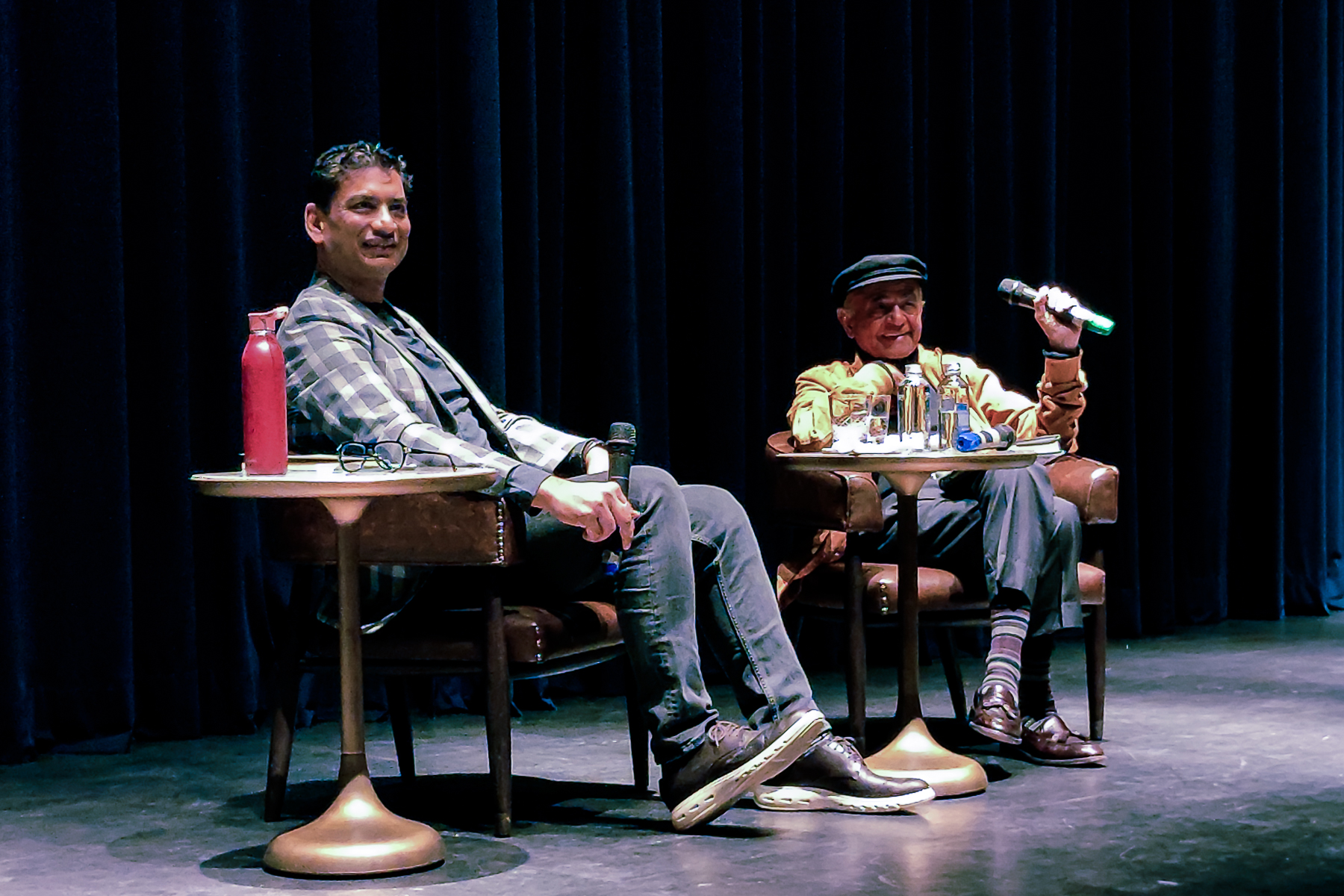
The habit of reading can help you get out of sticky situations or turn them around to benefit you. That’s what happened with author, management guru and public intellectual Gurcharan Das when he had gone to sit for his first job interview at the company that made Vicks Vaporub.
During the course of the interview, Gurcharan Das, who had never studied or done any kind of business earlier, was asked what his objective was in life. To this, Gurcharan Das had replied, “To be happy”.
When the interviewer asked him if he knew anything about business, Gurcharan Das replied, “Yes, I know a wonderful story called The Mouse Merchant.”
He’d read this story in a book called the Kathasaritsagara (which means an ocean of stories) that had been gifted to him by a family friend. The Kathasaritsagara is a 13th century Sanskrit text.
This is how Das narrated the story to Kunzum owner Ajay Jain who was interviewing him at a book talk regarding his new book Another Sort of Freedom:
A 17-year-old boy and his mother are having a conversation. Since they are poor, she cleans houses to make a living. The boy is unemployed. One fine day, the mother tells him, “Now son, you have finished school. You are not going to be like me. You are destined for bigger things. The richest man in town lives in that house. He’s a kind person. You go and wait outside his door and ask him for advice.”
The next day, the boy goes and stands outside the rich man’s house. In the courtyard, he sees a dead mouse. When the great man comes out of his mansion, he smiles at the boy and asks him, “What do you want?”.
The boy replies, “Can I have that dead mouse?”
The rich man laughs and says, “You’re the first person who’s asked me this. You’re doing me a favor. Most people want a job or money. What else do you want?” The boy says, “nothing”.
And the boy picks up the dead mouse and goes back.
He goes to a widow in his neighbourhood and sells the dead mouse to her as cat food.
With the few paisa that the widow gives him, he goes to the bazaar and buys some masala channa. And he makes pudiyas (small packets) out of those channas. He also gets a ghara (earthern pot) of water and takes it to the middle of the town square. With these pudiyas of channa and the ghara of water, he sits and waits.
In a few hours come loggers from the forest carrying logs of wood.
And they are all tired.
As they put their weight of the timber down on the ground, the boy offers each one water and a snack of the pudiya of channa.
But they have no money, so each of them gives him a log. The next day, he sells all the logs and with the money, he gets better channa and he gets nicer packets and sells them to the loggers. He does this for the next two-and-a-half months.
And then the monsoons come in.
The logging stops and the price in the timber market shoots up.
Now the boy has a house full of logs and he starts unloading his logs into the timber market. And by the end of the monsoon season, he has enough money to buy a shop of his own in the timber market. He sets himself up as a timber merchant with one big competitive advantage: His suppliers know him, and they are partial to him. So, each of the loggers gives preference to him. In a few years, he has a successful, thriving wood-selling timber merchant business.
Then he realizes that there’s more to be done since there wasn’t enough margin in the wood-selling business. There’s more margin to convert the timber into ships.
So, he finds a master carpenter who’s a shipbuilder and makes him his partner. He finances the carpenter and soon he is in the business of making ships. He creates a successful subsidiary. And then two years later, he thinks that shipping makes more money than actually making ships.
So, he finds a retired ship captain, makes him his partner and finances his shipping business. And suddenly he’s got his ships that are sailing, taking cargo and passengers. By the ripe old age of 25, he has become the richest man in town.
So, he goes to a jeweler and tells the jeweler to make him a 24-carat gold mouse.
He takes that gold mouse and goes to the rich man in town. In today’s language, he would have said, “this is your return on your investment of a dead mouse.” And he presents the gold mouse to the rich man. The rich man is staggered by what has happened and he is so happy that he gives his daughter in marriage to this young man.
And that’s the end of story.
Upon hearing this story from Gurcharan Das, Mr Banta, who was interviewing him, laughed and hired him.
That’s how Gurcharan Das started his career. From the ivy-covered halls of Harvard to the dusty bazaars of India and dealing with retailers and on to larger things later in life.
All because he could narrate a story that he had read long ago.
Walk into your nearest bookstore to read Gurcharan Das’s new book or Whatsapp +91.8800200280 to order. Buy the book(s) and the coffee’s on us.
